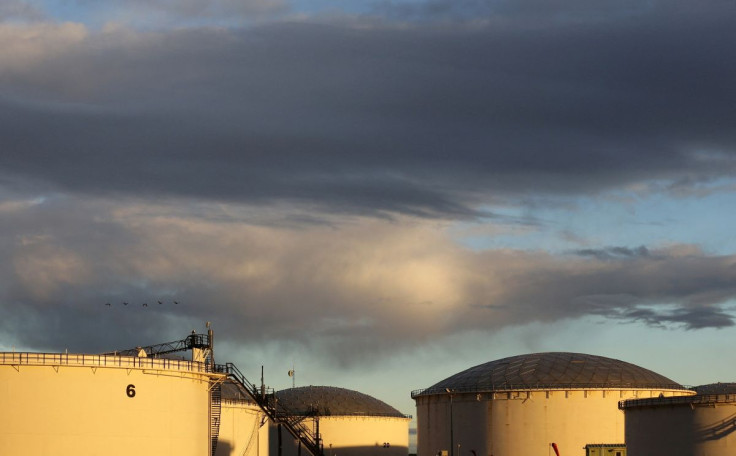Oil Prices Fall After US Data Shows Lackluster Gasoline Demand

Oil prices fell on Wednesday, after U.S. government data showed lower gasoline demand during the peak summer driving season and as interest rate hikes by central banks to fight inflation fed fears the economy could slow, cutting energy demand.
Brent crude prices for September were down 37 cents to $106.98 a barrel by 11:02 a.m. EDT (1502 GMT). U.S. West Texas Intermediate (WTI) crude for August fell $1.87, or 1.8%, to $102.35 a barrel. The WTI contract expires on Wednesday.
The more active September WTI contract was at $99.87 a barrel, down 87 cents.
U.S. gasoline inventories rose by more than expected last week, gaining 3.5 million barrels to 228.4 million barrels, the EIA said. Analysts had predicted a 71,000-barrel rise. [EIA/S]
Product supplied of gasoline - a proxy for demand - was about 8.5 million barrels per day, the data showed.
"Gasoline demand is subpar to say the least," said John Kilduff, partner at Again Capital LLC in New York. "Certaintly these high gas prices have undermined consumer confidence."
U.S. motorists were shocked this summer as pump prices climbed to a record of over $5 per gallon in June.
Meanwhile, crude inventories fell by 446,000 barrels last week to 426.6 million barrels, compared with analysts' expectations in a Reuters poll for a 1.4 million-barrel rise.
Oil prices have been extremely volatile, caught in a tug-of-war between supply fears caused by Western sanctions on Russia and worries that the fight against inflation could weaken the global economy and cut demand.
On Friday, open interest in New York Mercantile Exchange futures fell to its lowest since September 2015 as concerns that the Federal Reserve will keep raising U.S. interest rates led investors to cut exposure to risky assets.
Analysts expect oil supply tightness to keep supporting prices while U.S. shale oil production expands at a modest pace.
"With little room for OPEC+ to increase production, the oil market will struggle to balance out in the coming months, thereby propping up prices," said Stephen Brennock of oil broker PVM.
On Tuesday, ConocoPhillips Chief Executive Ryan Lance warned of looming crude oil shortages and price volatility.
Limited supplies have kept Brent above $105 a barrel and prompt Brent inter-month spreads in wide backwardation at over $4.40 a barrel. In a backwardated market, front-month prices are higher than those in future months.
© Copyright Thomson Reuters 2024. All rights reserved.




















